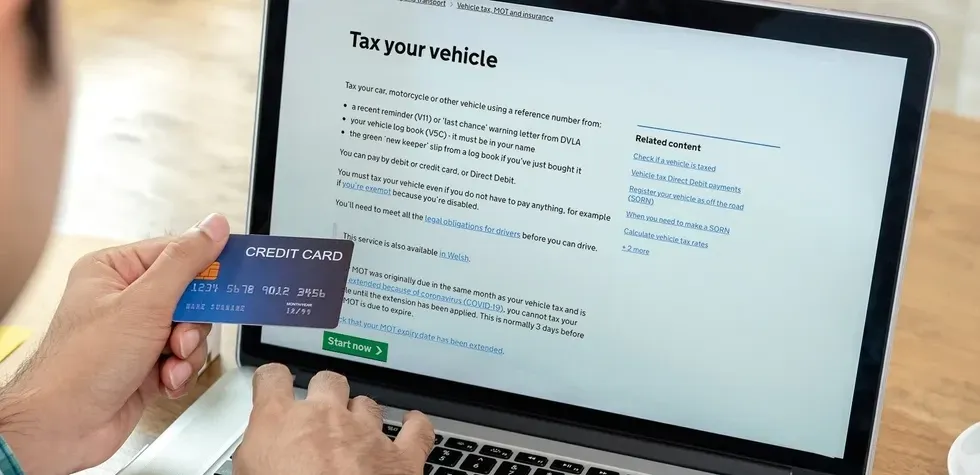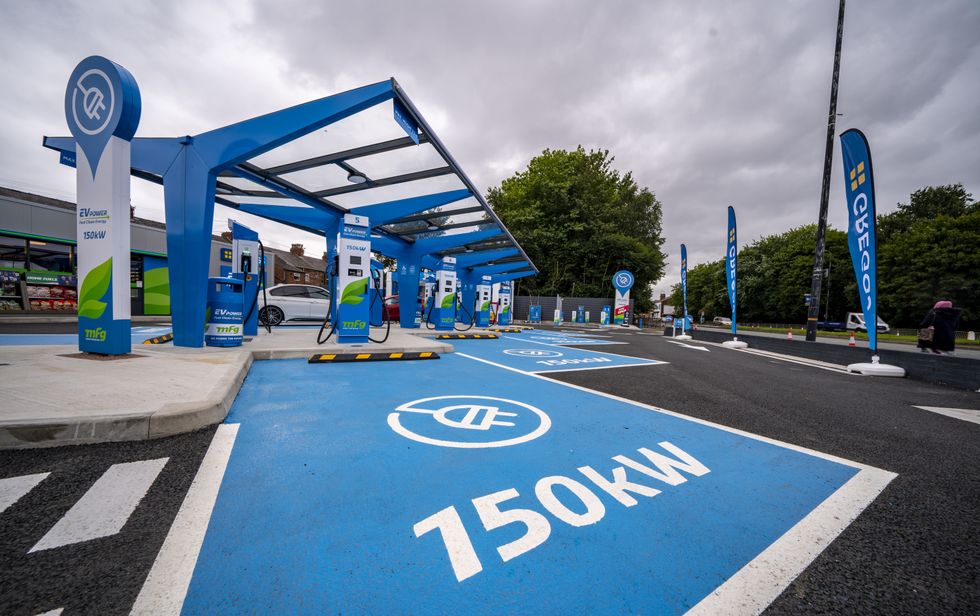Drivers will see new car tax measures in the coming months following the Budget as Chancellor Rachel Reeves announced new rules to help motorists adapt to electric vehicles.
In Labour’s first Budget in almost 15 years, the Chancellor unveiled a range of measures from hiking National Insurance rates paid by employers to a freeze on fuel duty.
To help drive investment in zero emission vehicles, the Government has pledged to strengthen incentives to purchase electric cars.
This will be done by widening the differentials in Vehicle Excise Duty (VED) first year rates between EVs and hybrids or internal combustion engine cars.
Do you have a story you’d like to share? Get in touch by emailing[email protected]

Many drivers could be impacted by the incoming car tax changes next year
X/DVLA
The Government is also maintaining EV incentives in the Company Car Tax regime and extending 100 per cent First Year Allowances for zero emission cars and EV chargepoints for a further year.
From April 1, 2025, zero-emission cars will pay the lowest first-year rate. Rates for cars with CO2 emissions of between one and 50 grams per kilometre and 51-75g/km, including hybrid vehicles, will increase to bring them closer to higher emitting cars.
Cars in the bands for CO2 emissions of 76-90g/km and above will pay double the equivalent rates from 2024 to 2025.
Similar tax measures will also see VED rates uprated for heavy goods vehicles, trade licences and Heavy Goods Vehicle Levy by the Retail Price Index, and will come into effect from April 1, 2025.
Car tax changes from April 1, 2025
Zero emission cars will pay the lowest first year rate at £10 until 2029-30
Rates for cars emitting 1-50g/km of CO2, including hybrid vehicles, will increase to £110 for 2025-26
Rates for cars emitting 51-75g/km of CO2, including hybrid vehicles, will increase to £130 for 2025-26
All other rates for cars emitting 76g/km of CO2 and above will double from their current level for 2025-26
The Budget documents also state that the Government would consider raising the threshold for zero emission cars only at a future fiscal event, to make it easier to buy electric cars in relation to the Expensive Car Supplement.
This is as a result of the Government recongising the “disporportionate impact” of the the current VED Expensive Car Supplement threshold for those purchasing zero emission cars.
Reacting to the Budget car tax changes, John Cassidy, director of sales at Close Brothers Motor Finance, said it was welcomed, although it remains to be seen whether these changes will kickstart the market further.
He added: “The Government will maintain existing incentives for EVs in company car tax from 2028. It will also increase the differential between fully electric and other vehicles in the first rates of Vehicle Excise Duty beginning in April 2025.
LATEST DEVELOPMENTS:
- Dartford Crossing chaos: Drivers face 90-minute delays as Air Ambulance deals with ‘serious collision’
- Petrol and diesel drivers to see major fuel station changes soon that could slash costs ‘by 6p per litre’
- Drivers ignored by Rachel Reeves in Budget with no mention of help with expensive car insurance prices

It is hoped the car tax changes will help boost uptake of EVs
PA
“The desired effect of the measure will not only be to stimulate demand for new BEVs, but also to boost demand for used EVs and support the residual values of electric cars, which have fallen by 60 per cent in the last 22 months in the UK.
“Importantly, the Government has pledged to match this tax break with a like-for-like investment in electric charging infrastructure across the country, which at present is failing to meet requirements.”